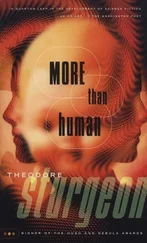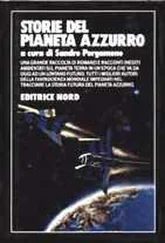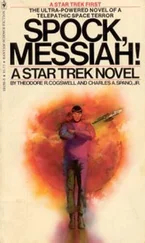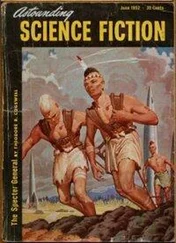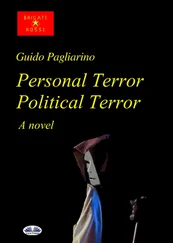“Wonderful.” Kulik was delighted. Then turning to the boy, “Son, this train is for you because you’ve earned it. Your behavior in school this last week has been outstanding and your schoolwork has improved even beyond my expectation. If you have trouble putting it together once you get home, I’ll gladly come by and help you. Now go on, run along.”
At that moment Ohrimko’s mother, who until now had sat quietly, suddenly clasped her hands. She shouted, “Good Lord! For something like this to happen to our family!” Then shaking her head, “No, no, we absolutely cannot accept such a fine gift. A toy like this is not for the likes of poor, ignorant moujiks like us. No, Ohrimko cannot accept it.”
Ignoring his mother, Ohrimko quickly and eagerly took apart the train set and put the pieces carefully back into the box. He put it under his arm, thanked the headmaster, bade him a good morning and scooted out the door. His mother and father followed close behind.
Kulik watched the family cross the yard. Ohrimko’s father was looking proudly at his son and telling him, “It’s truly a wonderful gift, son. You’re very lucky. Work hard in school and maybe one day you’ll learn how a real train works. Maybe one day you’ll even become an engineer. You just might be the first in the Suchok family to make something of himself.”
Kulik believed that the problems with Ohrimko had been solved. But he knew that the issue at play was not what it appeared to be on the surface. It was not about an unruly child, but about a system of provocation, manipulation, and intimidation. It would break whomever it chose, and by whatever means. He was just thankful that this day had started as well as it had.
Rather unexpectedly, an NKVD man moved into the small wooden house next to the Bohdanovich home. He was of average build and height, in his mid-forties, with thick graying sideburns. He left his house every morning at precisely the same time, carrying a bulging satchel, and hurried down the road toward the city center.
Marusia watched him from her living room window. His presence made her suspicious and resentful. Peaceful Luninetska Street, rarely disturbed by the sound of a motor car or even a horse-drawn cart, now for the first time had a stranger in its midst, and not just an ordinary stranger, but an NKVD man at that. Even Marusia’s parents noticed his comings and goings. Efrosinia went to the trouble of learning his name: Simon Stepanovich Sobakin.
One morning as Simon Stepanovich came out of his house and walked down the narrow walkway to the street, he glanced over a low hedge at the Bohdanovich house, only a few meters away. The movement of a curtain caught his attention. Someone was watching him, spying on him. He crossed over into his neighbor’s yard, peered in the window and became completely enthralled. He saw a girl there, very pretty, not much over twenty, her face fresh and full of life, framed by a pile of lovely brown hair. The two gazed at each other for a few seconds. Then, extremely embarrassed, the girl fled. Sobakin pressed his face against the glass and tapped on the window several times, trying to get her to come back. He was smiling, delighted by this unexpected encounter, and with someone so lovely, so charming!
Marusia was mortified, angry with herself for having spied on him in the first place. To make matters worse, she was certain it would be only a matter of time before he appeared at her door and introduced himself to her. And sure enough, the following Sunday, shortly before noon, he came to call. But he did not come alone; he arrived in the company of a man, younger than he by a good fifteen years, and not a stranger to the Bohdanovich household.
Old Valentyn was the first to greet the visitors. “Why, Nikolai Kopitkin!” He extended his hand joyfully. “The esteemed Pinsk poet. What a pleasant surprise! Come in, come in! You haven’t forgotten us after all!”
Nikolai shook hands with the old man, and bowed. “Good day to you, citizen. How’s the family? In good health, I’m sure. In any case, I’ve come by today with a friend who also happens to be a neighbor of yours. May I introduce Lieutenant Simon Stepanovich Sobakin.”
“Ah, our new neighbor, of course!” Valentyn turned to the lieutenant. “I’ve heard so much about you. Finally we meet. It’s an honor to have a government dignitary in my humble abode. Truly an honor.”
“Please, no need for ceremony.” Sobakin, distracted, said impatiently. “Just treat me as you would anyone else.”
Valentyn offered the men refreshment, and the three sat and chatted for several minutes about the weather. Hearing their voices, Efrosinia hurried in from the kitchen, wiping her hands on her apron. When she saw Sobakin, she was stunned and baffled. How did a prominent NKVD man, a lieutenant at that, come to be in her living room? And why was he laughing and drinking, with, of all people, her husband? A man of such high standing never casually and openly socialized with his neighbors like that. Narrowing her eyes suspiciously, she wondered why he was here. Was he looking for something or maybe someone? Was he on a mission of some sort? She studied his features closely: his high rounded cheekbones, his slanted blue eyes … She thought she detected a vague craftiness in his expression. Sobakin looked at her as if he had read her thoughts. “So, Mamasha , you think you recognize me, is that it? Have you seen me some place before?”
Efrosinia answered slowly, “You look familiar to me. Yes, I’m sure I’ve seen you before, but I can’t quite recall where. Maybe at the marketplace or the town hall. Your eyes are small, and they have a strange shine to them, a shine, if I may say so, that’s almost diabolical.”
“Diabolical!” Sobakin slapped his knee and burst into a fit of laughter. He was finding the lady of the house most amusing. “Efrosinia Sofronovna, don’t you think you are being a little hard on your new neighbor?”
As she was about to reply, Valentyn, knowing all too well the looseness of his wife’s tongue, was quick to cut her off. “Comrade Lieutenant, please excuse my wife. She has a habit of speaking before thinking. Don’t pay any attention to her.”
Having said this, he prepared himself for a scene, a scene like no other. He had challenged her openly, and before such a formidable guest. His wife was short-tempered and outspoken and with a blink of an eye could bring disaster upon the whole household. Second after second passed, but for some reason she did not utter a word. Watching her nervously, he became totally confounded when she sank into an armchair with her hands on her lap, almost as if she had resigned herself. She did not appear angry; but calm and composed. Valentyn remained on his guard. Something was definitely brewing in that old head of hers, not unlike the calm before the storm. Then without giving her husband a second glance, Efrosinia turned to Sobakin and said, quietly and seriously, “Tell me, comrade, what good is a father who’s so lazy he can’t even bring himself to travel to Lvov to bring home his ailing son?”
Finally there it was, she had come out with it. Valentyn grumbled at her, “I knew you’d be up to your old tricks, I should have known. Now you’re even bringing our guests into it!” Then apologetically to Sobakin, “As you can see, my wife’s not responsible….”
“Not responsible! Hah!” Efrosinia shot back. “Is that what you call it? Why, you old goat! You’re nothing more than a parasite! Our son’s in Lvov somewhere, maybe even dying, and instead of going after him, you just stretch yourself out on that godforsaken sofa and nod off. You don’t care what happens to him, you don’t care about anything.”
Читать дальше

